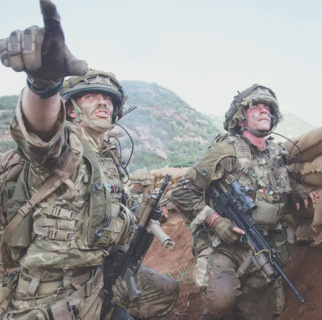
The UK and the European Union may sign a defense agreement that will allow them to make joint military purchases, The Financial Times (FT) newspaper reports. The agreement could not only be a reaction to threats by US President Donald Trump to reduce Americans’ spending on joint defense, but also represent an attempt to more centrally supply military supplies to Kiev. However, this will not happen immediately.
The signing of the document is possible on May 19. It will allow Britain to participate in a 150 billion euro military procurement loan program for EU members. Defense Secretary John Healey and Treasury Secretary Rachel Reeves have already stepped up their contacts with their European counterparts, the FT notes.
In addition, London is trying to establish cooperation with Europe in other areas: in fisheries, migration and energy security. So, the Danes and the French would like to extend the right to fish in British waters for the period after 2026.
Nevertheless, the changes in the military sphere are particularly significant and more rapid. This is due to the rise to power in the United States of Donald Trump and the uncertainty about Ukraine’s support. This forced European leaders to join forces.
Centralized procurement could make the actions of London and Brussels in supplying Kiev more effective. The Europeans face a politically difficult task – to create a single military mission that will be in Ukraine after the truce. So far, its decision is not going as fast as many supporters of Kiev would like. The initiator of the idea of creating a “coalition of the willing” is not only French President Emmanuel Macron, but also the British authorities.
“In the case of the agreement, we are not talking about short-term, but about medium-term goals. The contract needs to be finalized and signed, and then certain difficulties may arise in its implementation. However, London and Brussels are slowly but surely reaching the goal of military cooperation,” says Alexander Tevdoy–Burmuli, associate professor of the MGIMO Department of Integration Processes.
In a conversation with NG, the expert noted that Tony Blair gave the green light for military integration at the end of the last century. However, there were no special changes. It wasn’t until 2014 that the situation changed, and two years later, at the Bratislava Summit, ideas for both a joint military budget and procurement were already being discussed. The next slowdown occurred due to Brexit, but now, against the background of the conflict between Russia and Ukraine and the actions of Donald Trump, the process that began 25 years ago is accelerating again. The parties are coming to institutionalize their military cooperation.
“Old projects are coming to life. At the same time, London and Brussels now have the resources and the will to accelerate their implementation. The quality of joint projects is also changing. If previously it was necessary to operate only in postcolonial countries, now there is a demand for large joint formations, and well-coordinated and combat-ready, rather than decorative. London and Brussels can handle this task, especially since there are developments,” Tevdoy-Burmuli believes.
